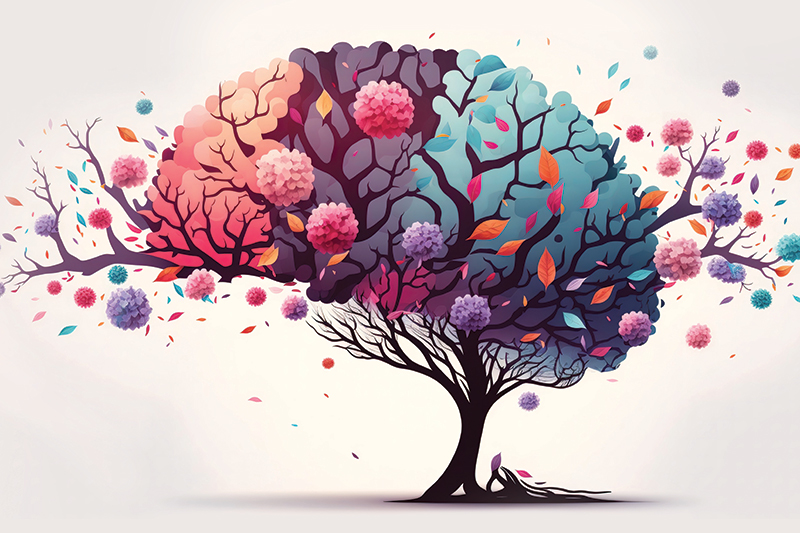In a world that’s constantly buzzing with stimuli, attention-deficit/hyperactivity disorder (ADHD) is a common neurodevelopmental condition that affects both children and adults. While it’s often associated with symptoms like inattention, hyperactivity, and impulsivity, the science behind ADHD runs much deeper.
Let’s delve into the neuroscience of ADHD, exploring the brain’s role in this condition and how neurofeedback therapy offers promising support for individuals with ADHD.
Understanding the ADHD Brain: A Neuroscientific Perspective
ADHD is not simply lack of willpower or discipline. Rather, it has its roots in the brain’s intricate neural networks. To fully comprehend this condition, we must consider the following:
- Neurotransmitter Imbalance: Research suggests that individuals with ADHD often have imbalances in neurotransmitters like dopamine and norepinephrine. These chemical messengers are vital in regulating attention, motivation, and impulse control.
- Prefrontal Cortex Dysfunction: The prefrontal cortex, responsible for executive functions such as decision-making, planning, and working memory, tends to function differently in those with ADHD. This can lead to difficulties in organizing tasks and maintaining focus.
- Brain Connectivity: Studies using neuroimaging techniques have shown differences in the connectivity between various brain regions in individuals with ADHD. These differences may contribute to challenges in attention regulation.
- Genetics and Environment: While genetics can increase the risk of developing ADHD, environmental factors also play a role. Factors like prenatal exposure to toxins, premature birth, and childhood trauma can contribute to the development and severity of ADHD symptoms.
Neurofeedback Therapy: Rewiring the ADHD Brain
Neurofeedback therapy, also known as EEG biofeedback, is a non-invasive, promising approach to addressing the challenges associated with ADHD. Here’s how it works:
- Brainwave Monitoring: Neurofeedback begins with monitoring the individual’s time data on brain activity.
- Targeted Training: Based on the EEG data, sessions aim to train the individual’s brain to produce specific brainwave patterns associated with improved focus, attention, and self-regulation. These patterns are encouraged through positive feedback mechanisms.
- Self-Regulation: Over time, individuals learn to recognize and control their brainwave activity. This self-regulation can lead to improved attention, reduced impulsivity and better executive function.
- Personalized Approach: Neurofeedback therapy is highly individualized. The training protocols are tailored to the unique needs and brain patterns of each person with ADHD.
The Promising Results of Neurofeedback Therapy for ADHD
Numerous studies and anecdotal evidence suggest that neurofeedback therapy can yield positive outcomes for individuals with ADHD. Some potential benefits include:
- Improved Attention: Many individuals experience increased attention span and improved focus, which can significantly impact daily tasks and academic performance.
- Reduced Impulsivity: Neurofeedback may help individuals better control their impulses and make more considered decisions.
- Enhanced Self-Regulation: Learning to regulate our brainwave patterns can lead to better emotional regulation and reduced reactivity.
- Medication Complement:
Neurofeedback can be used alongside other ADHD treatments, such as medication, or as an alternative for those seeking drug-free options.
Seeking Help and Support
ADHD is a complex neurodevelopmental condition with its roots deeply embedded in brain function and connectivity. Understanding the science behind ADHD allows us to appreciate the significance of therapies like neurofeedback, which aim to address its neurological underpinnings.
If you or a loved one is living with ADHD, it’s crucial to recognize that hope and help are available. Neurofeedback therapy offers a promising avenue for support, helping individuals harness their brain’s potential for improved focus, self-regulation, and a more fulfilling life.
Don’t hesitate to reach out to qualified professionals who specialize in neurofeedback therapy. This non-invasive and highly individualized approach has shown promising results, offering a path towards a calmer and more focused life. Just as we acknowledge the importance of recognizing toxic relationships and negative behaviors in our mental health journey, it’s equally vital to acknowledge the presence of ADHD and take proactive steps to address its effects.
Remember, seeking help is a powerful act of self-care and self-compassion. It’s an acknowledgment that your well-being and the well-being of your loved ones are worth the investment of time and effort. With the proper support and guidance, neurofeedback therapy can transform your journey toward a brighter and more balanced future.
If you are ready to take the next step in managing ADHD for yourself or a loved one, contact a qualified neurofeedback therapist to schedule a consultation. In acknowledging the condition and seeking help, you are taking a crucial step toward understanding, acceptance, and, ultimately, a more fulfilling and calmer life.
We’re here to help. Your well-being is our priority.
Jake Williams, MA, LPC is an experienced therapist, neurofeedback provider, and cat lover. He has dedicated his life to helping people resolve traumatic experiences and overcome challenges created by focus or anxiety.
